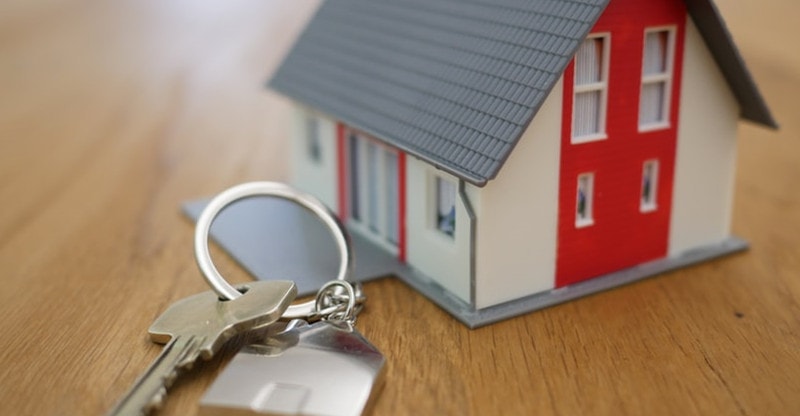Home Buying During a Pandemic: Is Now The Right Time to Purchase a Home?
The Federal Reserve recently announced it was slashing interest rates to near zero in a historic attempt to counter the economy-crippling effects of the coronavirus pandemic. Mortgage rates have already been pretty affordable for a while.
But if you’ve been dreaming of owning a home, there may be no better time to invest in real estate than now. Low interest rates mean a more affordable monthly mortgage payment, essentially allowing you to buy more house with your hard-earned money.
Before you jump into house hunting, there are some other things to consider. Low interest rates are a sure-fire reason to pull the trigger on buying a new home. But there’s major economic uncertainty on the horizon.
After all, when was the last time the world shut down in light of a pandemic? As we navigate this unprecedented time, consider these points to decide if it’s really the best time to buy a house.
Qualifying for a Mortgage
Qualifying for a mortgage is never easy, but it may be harder than ever at this time. The Fed may have dropped interest rates to all-time lows, but banks and lenders are tightening their lending standards to protect themselves against potential borrowers who may not be able to afford their mortgage payments in the near future.
Their fears aren’t unfounded — the Fed estimates unemployment may hit up to 32%. That’s 47 million people without work and at risk of not paying their mortgages.
Some ways lenders may make the application and approval process more difficult include raising the required FICO score, moving up the age of documents from four months to only two, and requiring extra employment verification.
If you’re planning on buying a home in the near future, start your mortgage prequalification process as soon as possible to avoid any further restrictions and lender modifications to their requirements, which are bound to make it difficult for many Americans to qualify for a home loan.
Landlords Are Facing Challenges
If you’re considering buying a home with the dream of earning investment income, think long and hard about your timing. Being a landlord comes with many risks and responsibilities. Traditional landlords and vacation property owners are both suffering from the current pandemic.
Airbnb has been a lucrative solution for vacation property owners for years. But vacation properties are taking a hard hit as people cancel all their travel plans to shelter at home safely. Many hosts are scrambling to find long-term renters for their properties, but this solution may not be any better at this time.
CNN reported that nearly a third of U.S. apartment renters didn’t pay their rent in April. And some legislators are calling for a new Rent and Mortgage Cancellation Act, which would waive rent payments for the duration of the pandemic, potentially leaving many homeowners who rely on rental income out in the cold.
Consider why you want to purchase a home at this time. If you plan on living in your home, you may weather the current events better than if you hope to rent the property and collect income on your investment. It’s too soon to tell how long the current pandemic will last and what effects it will have on rentals and the economy as a whole. Remember that when you’re house hunting.
Job Security and Your Finances
If you’re still set on capitalizing on the current market to buy a property, make sure you’re confident about your financial security. Roughly 6.6 million Americans filed for unemployment in March of 2020, more than 10 times the last record set in 1982.
In addition, the Fed fears unemployment filings are just getting started, projecting 47 million Americans may be unemployed before the outbreak is over. The magnitude is unprecedented — it’s difficult to tell how this will impact the economy as a whole and for how long.
It’s hard to predict how secure your job is, but you can at least safeguard yourself and your assets against job loss, temporary or otherwise. Take a look at your finances.
If you’re currently paying off a large amount of debt from student loans, credit cards, and car loans, you may want to put off home buying and focus your resources on becoming debt-free. Since lenders are tightening their lending requirements, if you carry a lot of debt, you may not qualify for a mortgage at this time.
Besides making sure you’re debt-free, it’s vital to create a financial contingency plan to protect yourself and your investments. Create a budget and allocate a portion of your income towards an emergency savings fund.
Plan to save at least six months’ worth of expenses, including the cost of your mortgage, insurance, and property taxes, so if you lose your job or get placed on temporary leave, you can meet your financial responsibilities.
Is it the Right Time to Buy a House or Not?
There is no hard and fast rule to answer the question. If you plan on living in the house and feel your job is secure, your debt is under control, and you have enough savings to cover your expenses should the economic climate get worse, then it’s a good time to buy a house.
Interest rates are at an all-time low and few people are out purchasing a home, which means property prices are likely to drop.
If you are interested in purchasing a home for the rental income, now may not be the best time to buy a house. Renters are struggling to pay their bills and legislation may be on their side.



